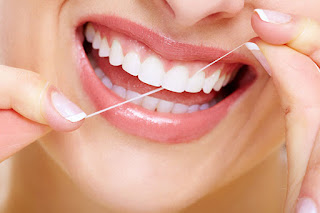To some extent, gum recession plagues nearly half of middle-aged adults and 88% of adults over age 65. While receding gums could, unfortunately, be inevitable for some since it can be a hereditary trait, others can avoid gum recession by caring for their teeth and gums properly. If you are interested in preventing the deterioration of your gums, and you want to keep your healthy, beautiful smile, continue reading to learn more about gum recession and how to avoid it.
Brushing Habits
Gum recession has many origins. Like mentioned briefly, some people are more prone to gum recession due to the inheritance of thinner gums that do not stand up well to daily wear and brushing. These people should take extra care when brushing and flossing to do so gently, and a soft-bristled brush should be used. No person should brush too aggressively as this can lead to the deterioration of even the healthiest gums.
Facial Trauma
Gum recession can also be attributed to facial trauma. If you have ever had an injury that affected your teeth and gums, your gums may be more likely to recede. You can prevent facial trauma by wearing a mouthguard when you play sports. Mouthguards act as a barrier for your teeth against any objects that make contact with your face. A dentist can fit you for a proper mouth guard, or you can find one at your local sports store.
Gum Disease
Gum disease is one of the biggest culprits of gum recession. Gum disease, also known as periodontal disease, is the chronic inflammation and infection of the gums. This disease develops due to tartar (hardened plaque) buildup under the gum line that acts as an irritant to your soft tissues. You can prevent periodontal disease by visiting the dentist regularly, receiving deep teeth cleanings, and having cavities taken care of. If you do develop gum disease, you are at risk for not only gum recession but also tooth loss. If you notice that your gums are redder than normal, or they are bleeding easily, visit a dentist immediately for treatment. Regular flossing and brushing can also help you steer clear of gum disease.
Orthodontic Treatment and Oral Piercings
According to a study from the website of the National Center for Biotechnology Information, 15% of young adults out of 303 had gum recession, resulting in the confirmation that gum recession can be correlated with past orthodontic treatment and oral piercings. This statistic should encourage any patient undergoing orthodontic treatment to take special care of their teeth and gums during this time. Many patients give up on flossing during braces treatment because it becomes more of a challenge. Failing to floss results in the potential for gum disease and gum recession. Ask your orthodontist for tips on flossing during your treatment to ensure your gums remain healthy.
As for oral piercings, avoid them altogether. While they may be trendy for a time, the health of your teeth and gums should be more important. Oral piercings act as persistent irritants to your oral tissues, resulting in inflamed gums that will slowly recede.
There are many reasons for gum recession in addition to this list. In order to avoid it, the best thing you can do is to keep up with regular visits to your dentist. A dentist knows the signs of receding gums and can give you more tips on how to avoid it altogether. If you already have receding gums, visit our office to learn more about repairing them.
